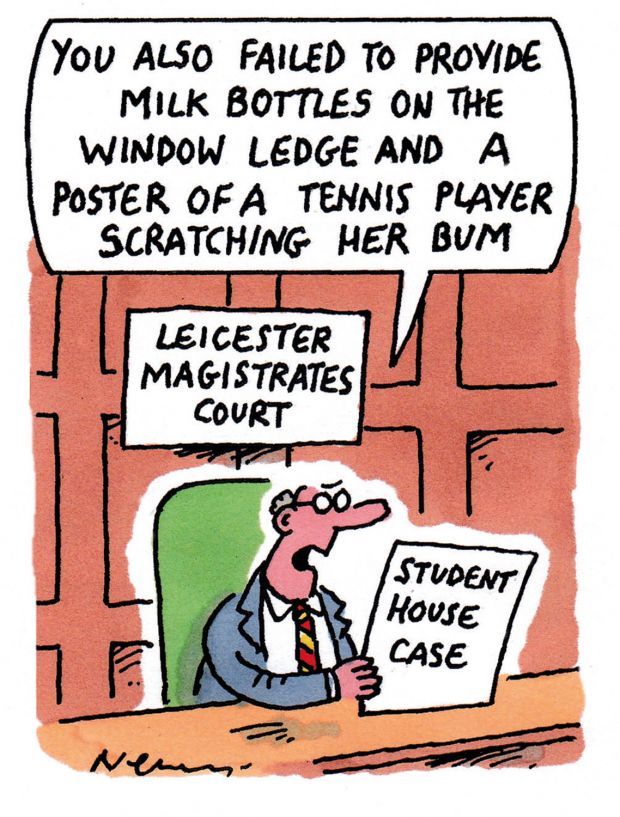
- As every child knows, while one ice cream might be delicious, two can leave you feeling sick. It is possible that academic and poet Jonathan Hart is reflecting on similar metaphors after finding himself without either of the two full-time professorships he apparently held simultaneously in 2011 and 2012. As Times Higher Education previously reported (“Humanities scholar’s quantum state”, 28 March 2013), Professor Hart was appointed professor of English and comparative literature at the University of Alberta in 2004. In 2011, he was also appointed professor of English studies at Durham University, while still employed by Alberta. Neither university appears to have known about his dual roles and, in March 2013, a Durham spokeswoman confirmed that it no longer employed him. THE has now confirmed with Alberta that he has also vacated his chair there. However, the university refused to give any further details.
- Someone who arguably did fill the shoes of two people was University of Leicester vice-chancellor Sir Bob Burgess, and the institution’s thrusting press office, fresh from the global triumph of its heroic Richard III campaign, was never going to let him retire at the end of last month without a fanfare. However, more churlish observers than Week in HE might have raised an eyebrow at a rather giddy press release trumpeting all the praise “heaped” on him by the Lord Bishop of Leicester, Tim Stevens, and by GuildHE chief executive Andy Westwood (“The sector will miss Sir Bob and his style”). Sir Bob is quoted as telling a farewell reception that being Leicester head honcho was the best job he had ever had in higher education: “It’s a really great job and it’s a great job because all of you have made it great.” A great quote indeed, although it arguably falls towards the slightly less great end of great.
- Nor was it all hugs and kisses elsewhere in Leicester. The Leicester Mercury reported on 28 September that Obas Ebohon, reader in energy and sustainable development at De Montfort University, pleaded guilty at Leicester Magistrates’ Court to four offences related to a house he rented to seven students. These included failing to apply for a multiple occupation licence and failing to ensure that the boundary walls of the house were safely maintained. The court was told that inspectors found “faulty fixtures and fittings, a fire door which didn’t close or provide a safe means of escape, cracked plaster on the ceiling, a faulty lock on the front door”. In addition, “one shower wasn’t working and another shower was blocked”. The residents – who apparently have no idea what the “student experience” is all about – were not amused and complained to the council. Dr Ebohon was given a conditional discharge and fined a total of £2,000, plus more than £1,000 in costs.
- Five jolly japesters from Sweden have revealed that they have spent the past 17 years competing to insert the most Bob Dylan lyrics into the titles of their scientific papers. The Guardian reported on 29 September that the man (yes, they are all men) who has racked up the most quotations by the time he retires will win a free lunch. It all began with a 1997 Nature paper called “Nitric Oxide and Inflammation: The Answer Is Blowing in the Wind”. Subsequent examples published by the crazy quintet from Stockholm’s Karolinska Institute include “Tangled up in Blue: Molecular Cardiology in the Postmolecular Era” and “The Biological Role of Nitrate and Nitrite: The Times They Are a-Changin’”. Although the titles have all the subtlety of a Leopard-Skin Pill-Box Hat (see what we did there?), THE will buy dessert if any of them manages to incorporate “Motorpsycho Nitemare”.
- There was bad news for Nigel Farage’s long-term electoral prospects last week as the European Commission revealed that per cent of the 3 million students who have taken part in its Erasmus exchange programme since it began in 1987 met their long-term partner while studying abroad, potentially resulting in about a million bilingual babies. But at least there need be no worries about shifty, work-shy foreigners sponging off the state: The Erasmus Impact Study also suggests that unemployment rates for Erasmus alumni are 23 per cent lower than for other graduates five years after leaving university.
Register to continue
Why register?
- Registration is free and only takes a moment
- Once registered, you can read 3 articles a month
- Sign up for our newsletter
Subscribe
Or subscribe for unlimited access to:
- Unlimited access to news, views, insights & reviews
- Digital editions
- Digital access to THE’s university and college rankings analysis
Already registered or a current subscriber? Login
